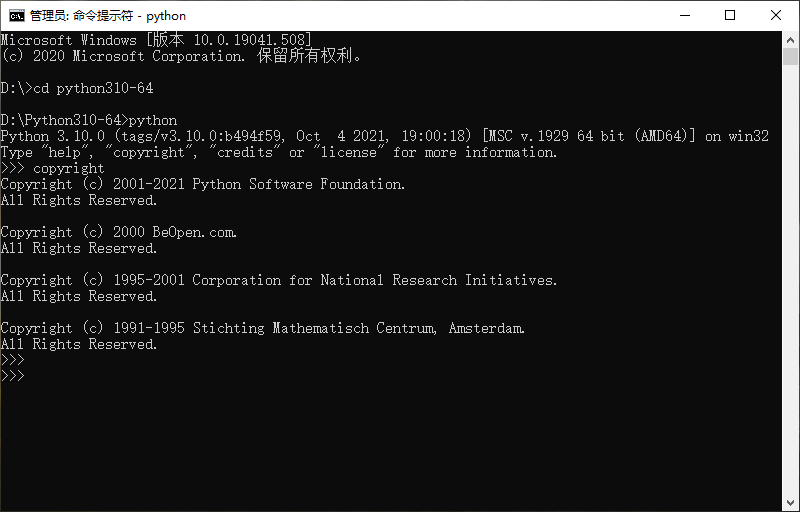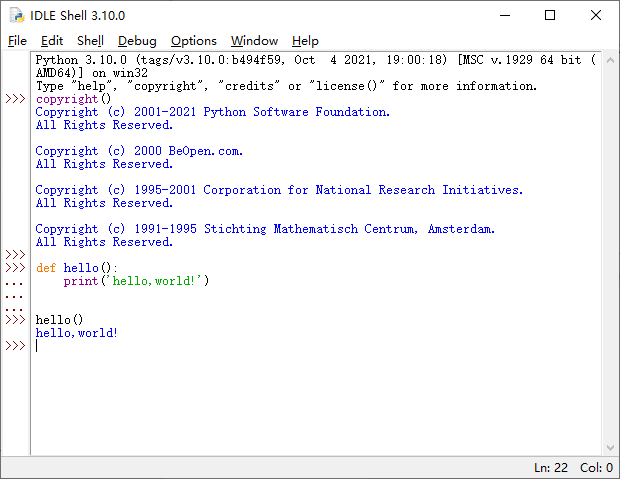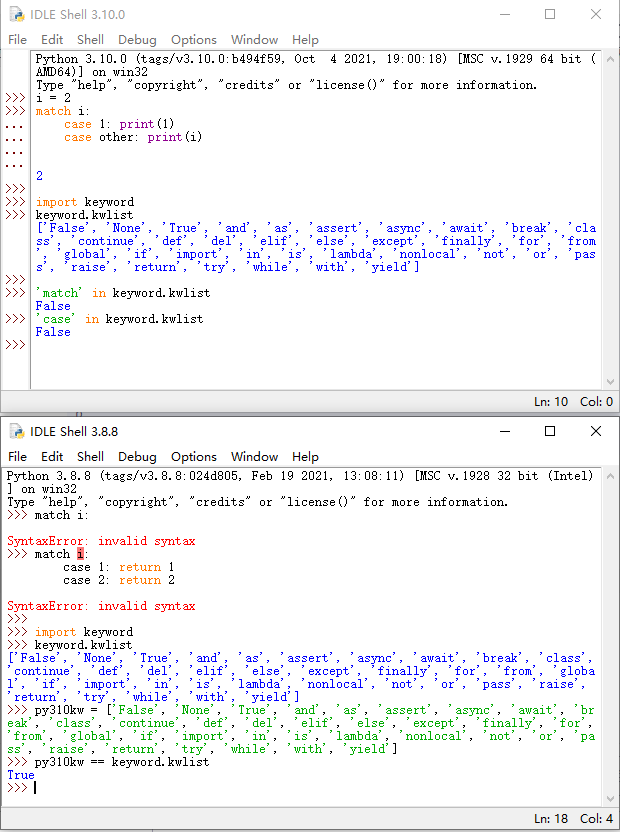In addition to Zhuang Zhou's dream of butterfly, what other dreams did Zhuang Zi talk about? Do you know?
1, Dream tree
In the world, Zhuangzi tells a story:
A carpenter came to Quyuan in the state of Qi and saw a huge tree in the temple. The tree is too big. It is as thick as a hundred girths and several feet high. Many people come to the temple to worship.
When the carpenter came, he didn't look. He just walked. The disciple asked curiously. The carpenter explained:
The big tree is "scattered wood". A ship will sink, a coffin will decay, furniture will break, doors and windows will damp, and pillars will be eaten by insects. It's useless to grow so big!
After listening, the disciples suddenly realized.
The carpenter went back and had a dream. I dreamed that the big tree said to him:
You compare me to the so-called useless wood, but the so-called useful trees have their fruits picked when they are ripe and cut off when they grow taller. The trees had a long life, but they died in a few years. Do you want me to end up like this?
The big tree said meaningfully: everything in the world is the same. My pursuit has been useless for a long time. After several twists and turns, I was almost cut off. Now I finally become what I am now. If I was very useful at the beginning, can I live to this day?
Useless is great use!
Dashu added at last: you say I am a scattered wood, why aren't you a scattered man?
This is another dream that Chuang Tzu asked the carpenter to say.
2, Dream Skull
In Zhile, Zhuangzi dreamed that he saw a skeleton frame on his way to the state of Chu.
On a whim, Chuang Tzu knocked on the skeleton with his horse whip and said, "Sir, did you do something injurious to heaven and justice, or were you hacked to death because of the collapse of the country, or were you ashamed to commit suicide because you did something shameful, or did you freeze to death or starve to death, or did you die naturally?"
After that, Chuang Tzu picked up the skull and went to sleep with it.
In the middle of the night, Zhuangzi dreamed that the skeleton was alive and said, "what you said is the situation of living people. When people die, there will be no such troubles."
Chuang Tzu: "what's the point of death?"
The skeleton said, "the dead have no kings, no ministers, no hot and cold seasons, no work, only from calm, long-term with heaven and earth, boundless happiness!"
Zhuangzi didn't believe it and said, "if I can restore your life, will you?"
The skeleton frowned and said, "how am I willing to abandon happiness and return to the world to suffer?"
Zhuangzi left thoughtfully, and then he saw a skeleton.
Zhuangzi pointed to the skeleton and said, "you know, I know, you have never died or lived. What are your worries? What are my pleasures?"
Since all things are equal, there is no need to tangle before and after death.
3, Dream white turtle
In foreign things, Zhuangzi said another dream in the name of song Yuanjun.
One day, song Yuanjun dreamed that someone with scattered hair peeped at the side door and said to himself, "I came from the abyss. When I went to the residence of Hebo, the fisherman Yu caught me."
Song Yuanjun woke up and sent someone to divine that it was a turtle with a circumference of five feet. Song Yuanjun called Yu and offered turtles to the court.
When the white turtle arrived, song Yuanjun wanted to kill the turtle and raise it. He was hesitating.
The diviner said, "if you kill the white turtle and use it for divination, you will be lucky."
So he cut the white turtle open and divined with the tortoise for dozens of times without any mistakes.
After knowing this, Confucius said, "the tortoise can show a dream to song Yuanjun, but it can't avoid the fish net; it can be used for divination without any mistakes, but it can't escape laparotomy. In this way, the gods can't take it into account.
If it is an ordinary turtle, it may be released. Its five foot round white turtle is rare in the world. If it is enshrined in a temple, it is a symbol of sacred glory and secular power. Therefore, it cannot escape being killed.
Chuang Tzu is a free and unrestrained turtle, but he doesn't want to be the one worshipped. For Chuang Tzu, no freedom is like death!
4, Dream ink
This dream is recorded in the "lieyukou":
Zheng suspended Confucianism for three years and finally became a great Confucianism. He ran a school in his hometown and let his brother Zheng Zhai learn Mohism.
After his brother's study, he also returned to his hometown to teach Mohism. For a while, Confucianism and Mohism argued with each other, while their father only helped his brother Zheng Zhai. For ten years, Zheng wanai couldn't bear the pressure to commit suicide.
After his death, Zheng slowly entrusted his dream to his father and said, "I trained your son to become a member of the Mohist family. But you didn't come to see my tomb. Now the trees are growing."
What is the bottom meaning of Chuang Tzu? Your two families don't argue about who is the source and who is the truth. What's the point?
The previous dreams of Chuang Tzu talked about the meaning of life, but the last one talked about different academic views. At that time, Confucianism and Mohism had a great debate, and Taoism was on the side. Most people thought that sitting on the mountain meant watching the tiger fight. Chuang Tzu wrote this dream and said things in a dream. This is Chuang Tzu's traditional method.
Are these new stories of Zhuangzi more bizarre and bizarre than "Zhuangzi Zhou Mengdie"? Although they are not bizarre, today I want to use the word "new" of the new story to lead to a new version, although it is a little mechanically copied——
It is the new version 3.10.0 of Python a week ago (2021.10.04):

Python 3.10.0 is the latest stable version of Python programming language, which contains many new features and optimizations.
Compared with 3.9, the main new features and changes of version 3.10 include:
PEP 623 -- deprecated and ready to remove wstr member from PyUnicode object
PEP 604 -- allow writing union type to X | Y
PEP 612 - parameter specification variables
PEP 626 - exact line number for commissioning and other tools
PEP 618 - add optional length check to zip
bpo-12782 -- context managers in parentheses are now officially allowed
PEP 632 - discard distutils module
PEP 613 -- explicit type alias
PEP 634 - structural pattern matching: Specification
PEP 635 - structural pattern matching: motivation and principle
PEP 636 - structural pattern matching: Tutorial
PEP 644 - OpenSSL 1.1.1 or later is required
PEP 624 - delete Py_UNICODE encoder API
PEP 597 - add optional coding warning
bpo-38605 -- from _future _importannotations (PEP 563) was in this list in previous pre releases, but it has been postponed to Python 3.11 due to some compatibility problems.
Note: the above contents are machine translation. Please understand if there are any errors.
Python 3.10.0 official download address
| Version | Operating System | File Size | GPG |
|---|---|---|---|
| Gzipped source tarball | Source release | 25007016 | SIG |
| XZ compressed source tarball | Source release | 18726176 | SIG |
| macOS 64-bit universal2 installer | macOS for macOS 10.9 and later | 39741684 | SIG |
| Windows embeddable package (32-bit) | Windows | 7521592 | SIG |
| Windows embeddable package (64-bit) | Windows | 8474319 | SIG |
| Windows help file | Windows | 9559706 | SIG |
| Windows installer (32-bit) | Windows | 27194856 | SIG |
| Windows installer (64-bit) | Windows | 28315928 | SIG |
Note: Python has not supported Windows 7 and earlier since 3.9 +.
Python 3.10.0 installation and running


The operation prompt of the IDLE window moves outside the edit box
Compared with version 3.8.8, the indentation alignment of statements is clear at a glance

Finally, branch structure statements are supported
Not switch case, select case, etc., but match case
def fib(n):
match n:
case 1|2:
return 1
case other:
return fib(n-1)+fib(n-2)
for i in range(1,11):
print(fib(i))
1
1
2
3
5
8
13
21
34
55
Other in "case other:" is not a keyword, but may be equivalent to case else, otherwise or default in other programming languages. It can be written arbitrarily, but the effect is the same, as follows:
def fib(n):
match n:
case 1|2:
return 1
case anything:
return fib(n-1)+fib(n-2)
fib(5)
5
fib(10)
55
A strange little discovery
How can there be assignment function?
i = 5
match i:
case 1: print(1)
case 2: print(2)
case i: print(i**2)
25
match i:
case 1: print(1)
case 2: print(2)
case n: print(i**2)
25
match i:
case 1: print(1)
case 2: print(2)
case n: print(n**2)
25
match i:
case 1: print(1)
case 2: print(2)
case i: print(n**2)
25
match i:
case 1: print(1)
case 2: print(2)
case a: print(i**2)
25
match i:
case 1: print(1)
case 2: print(2)
case i: print(a**2)
25
a
5
b
Traceback (most recent call last):
File "<pyshell#15>", line 1, in <module>
b
NameError: name 'b' is not defined
match i:
case 1: print(1)
case 2: print(2)
case b: print(i**2)
25
b
5
Another little discovery
Is this a bug, or is it careless and not updated? In the new version, the keyword match case has been highlighted and highlighted in yellow, which is the treatment of keywords, but the kwlist list in the built-in database keyword has not been added.

The help document also does not contain the contents of match and case
help('if')
The "if" statement
******************
The "if" statement is used for conditional execution:
if_stmt ::= "if" assignment_expression ":" suite
("elif" assignment_expression ":" suite)*
["else" ":" suite]
It selects exactly one of the suites by evaluating the expressions one
by one until one is found to be true (see section Boolean operations
for the definition of true and false); then that suite is executed
(and no other part of the "if" statement is executed or evaluated).
If all expressions are false, the suite of the "else" clause, if
present, is executed.
Related help topics: TRUTHVALUE
help('return')
The "return" statement
**********************
return_stmt ::= "return" [expression_list]
"return" may only occur syntactically nested in a function definition,
not within a nested class definition.
If an expression list is present, it is evaluated, else "None" is
substituted.
"return" leaves the current function call with the expression list (or
"None") as return value.
When "return" passes control out of a "try" statement with a "finally"
clause, that "finally" clause is executed before really leaving the
function.
In a generator function, the "return" statement indicates that the
generator is done and will cause "StopIteration" to be raised. The
returned value (if any) is used as an argument to construct
"StopIteration" and becomes the "StopIteration.value" attribute.
In an asynchronous generator function, an empty "return" statement
indicates that the asynchronous generator is done and will cause
"StopAsyncIteration" to be raised. A non-empty "return" statement is
a syntax error in an asynchronous generator function.
Related help topics: FUNCTIONS
help('match')
No Python documentation found for 'match'.
Use help() to get the interactive help utility.
Use help(str) for help on the str class.
help('case')
No Python documentation found for 'case'.
Use help() to get the interactive help utility.
Use help(str) for help on the str class.
Python 3.10.0 has many new functions, which need to be further studied and explored in the future
